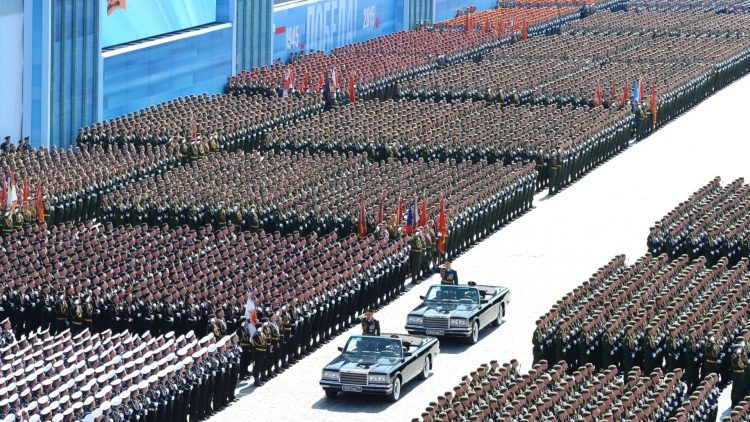For Germany, a key military backer of Ukraine, these efforts are troubling signs of what could come.
What Does This Mean for NATO and Europe?
Germany’s warnings aren’t just about what’s happening within its own borders. NATO as a whole must pay attention to these signs, especially given the ongoing conflict in Ukraine.
Russia’s war has already caused severe disruption in Eastern Europe, and its increasingly hostile posture toward NATO countries could shift the focus from indirect conflict to something more direct.
NATO Secretary-General Mark Rutte recently reiterated the alliance’s support for Ukraine and stated that Russia’s military actions are part of an “illegal war.” It’s clear that NATO’s commitment to defending Ukraine’s sovereignty is firm, but this also brings risks.
If Russia indeed sees the West as an adversary—as German intelligence suggests—it could escalate the situation beyond Ukraine’s borders.
The impact on neighboring countries like Poland and the Baltic states cannot be underestimated. Germany’s intelligence services have noted that these regions face a “brutal” level of threat from Russian activities.
For countries sharing borders with Russia or its close allies, the threat isn’t just theoretical—it’s something they have been living with for years. As these nations continue to ramp up their defense efforts, it’s worth considering whether the entire alliance needs to recalibrate its approach to defending against a potentially resurgent Russia.
How Could This Affect the United States?
The warnings from German intelligence chiefs aren’t just a European problem. The United States, as NATO’s most influential member and one of Ukraine’s strongest supporters, has a significant stake in the security situation across the Atlantic.
If Russia does indeed have long-term ambitions to confront NATO, it could pull America into yet another conflict it has sought to avoid.
In recent years, the US military presence in Europe has been reinforced, with American troops stationed in countries like Germany and Poland. These deployments are part of a broader strategy to deter Russian aggression, but if Moscow is indeed preparing for potential conflict with NATO, it could challenge US military planning.
The US would have to navigate a delicate balance between supporting its European allies and managing domestic and global security priorities.
Furthermore, the increased Russian espionage and sabotage activities that Germany has reported pose a threat not only to European allies but also to US interests.
American military facilities in Europe have been targeted in suspected Russian espionage efforts. Should Russia escalate its covert actions, the US may need to bolster counterintelligence and cyber defenses in coordination with NATO partners.
Looking Ahead: What Needs to Be Done?
While the possibility of a Russian military strike on NATO may still seem remote, the German intelligence warning is a reminder that preparation is essential.
NATO must ensure that its member states are ready for all scenarios, including potential cyberattacks, sabotage, and outright military aggression. Strengthening the alliance’s eastern defenses is a priority, as is enhancing intelligence-sharing among member countries.
For Germany, this means not only bolstering its own defenses but also advocating for a unified NATO approach to deter Russian ambitions.
The intelligence chiefs have already called for expanded powers to counter Russian activities on German soil, which could involve tighter security measures, increased funding for counterintelligence efforts, and better surveillance of critical infrastructure.
At the same time, diplomatic channels should not be ignored. Even as relations between the West and Russia deteriorate, there is still room for dialogue aimed at reducing tensions. While the current outlook is grim, efforts to de-escalate should continue, if only to prevent the worst-case scenario.
Another Wake-Up Call for the West
The latest intelligence warnings from Germany should serve as a wake-up call for NATO, Europe, and the United States. The possibility of a direct conflict with Russia might seem far off, but the signs are pointing toward a more dangerous and uncertain future. With Russian espionage, sabotage, and military activities on the rise, the threat is real and must be taken seriously.
As we approach 2030, NATO’s leaders must prepare for the possibility that Russia is not just rebuilding its military for defensive purposes but is eyeing a more confrontational stance against the West. Strengthening alliances, enhancing military readiness, and keeping lines of communication open will be key to navigating the challenges ahead. It’s a tense time for international security, and the stakes have never been higher.
—
Disclaimer: SOFREP utilizes AI for image generation and article research. Occasionally, it’s like handing a chimpanzee the keys to your liquor cabinet. It’s not always perfect and if a mistake is made, we own up to it full stop. In a world where information comes at us in tidal waves, it is an important tool that helps us sift through the brass for live rounds.










COMMENTS